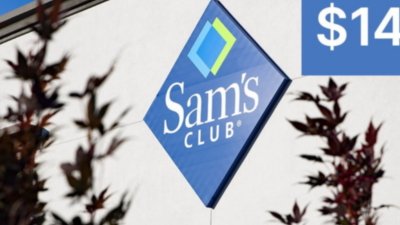Jobs should return $85 million to shareholders — Bloomberg
Apple Computer chief executive Steve Jobs should return to shareholders about $85 million he earned from a previous stock option grant because it alone was an indirect benefit of option backdating, according to Bloomberg.
According to Bloomberg columnist Graef Crystal, the company's statement that Jobs did not benefit from the backdating is a bit disingenuous. He insists that Jobs — who offered a public apology for the accounting scandal — should give back the money he indirectly earned as an indirect result of the backdating.
"Some $85 million or so that the chief executive officer collected because of a sleight-of-hand [Apple] engaged in when it awarded Jobs some mammoth stock option grants," said Crystal. "That's money that should go back to the shareholders."
"In January 2000, Jobs was granted what was, and I believe still is, the largest option grant on a single day. It covered a staggering 40 million split-adjusted shares," he continued. "The strike price of that grant was equal to the lowest closing price of Apple stock in the 56- and 30-calendar day periods preceding the grant and in the 30- 56- and 90-day periods following the grant. In other words, perfectly timed to Jobs's advantage."
Because Apple's stock plunged when the Internet bubble deflated, that grant wound up underwater, with the market price of Apple's stock below the options' strike price.
As a result, Crystal notes, Apple's "indulgent board" decided that Jobs "didn't need to be punished for the decline in the share price," rather, he "needed to be rewarded." He was given a second grant covering 15 million split-adjusted shares in October 2001.
In March 2003, Jobs "voluntarily cancelled" all 55 million option shares, according to the company's proxy statement. That cancellation is the basis for Apple's statement that he did not benefit from these options, the columnist notes.
"But hold on," wrote Crystal. "In its report to shareholders that year, Apple's board compensation committee noted the voluntary surrender of the options and then disclosed that 'in exchange for his cancelled options' Jobs had been given 10 million split- adjusted shares.
The columnist calculated the value of the "voluntarily cancelled" 55 million option shares to be $77 million. But he notes that the exchange for the underwater options was based on favorably chosen "backdated" dates and should be adjusted to the average instead. Jobs, he claims, was not direct benefiting from the "favorably" chosen dates, but did benefit from the stock option grant deal due to the exchange value of those options, which in all likelihood were based on backdating.
Crystal calculates that the company should have granted Jobs about 8.7 million shares (as opposed to 10 million) based on the average value of the stock. The "extra" 1.3 million shares given to Jobs are worth about $85 million," he said.
"Under this scenario, Jobs's free shares would have been worth $557 million as of March 19, 2006, when the restrictions on his free shares lapsed, not $640 million. On that basis, an appropriate remedy could be for Jobs to give back to the company's shareholders that difference, or a rounded $85 million."
"Jobs may be innocent of wrongdoing. But that doesn't mean he should be the beneficiary of wrongdoing," said Crystal.
 AppleInsider Staff
AppleInsider Staff










 Malcolm Owen
Malcolm Owen
 Christine McKee
Christine McKee

 Amber Neely
Amber Neely

 William Gallagher
William Gallagher









